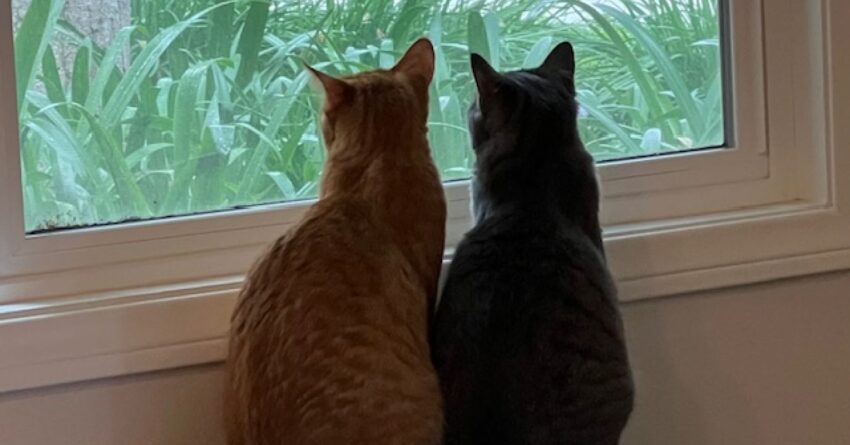
Source: Courtesy of Bonnie Zucker
As I think about planning an upcoming summer vacation, I feel a familiar wave of anxiety and dread. The thought of leaving cats home all alone steals some of the joy from anticipating a much-needed vacation. I’m not alone in these concerns, and many of my therapy clients have expressed similar distress over the years.
In some cases, it might be feasible to take your pet with you so that you can enjoy your trip together. However, that is impossible in many instances, so here are some tips to help you cope during your time away.
1. Assess What Is Hard for You
It can be helpful to ask yourself why leaving your pet on vacation is hard. For example:
- Does it seem like you are abandoning them?
- Do you think you are a bad pet owner for leaving them?
- Do you worry that your pets will be unhappy and miss you?
- Are you concerned that your pet will be angry at you?
Sometimes, people attribute their childhood experiences to their pets. For example, someone who felt abandoned by a loved one might conclude that their pet might feel the same way. If you are making these assumptions that your pet will have the same experience as you did, it’s good to recognize this misattribution, as it will help you better cope.
Once you understand what is challenging about leaving your pet, you can develop some coping statements. Examples might be:
- Just because I often felt abandoned as a child doesn’t mean Fluffy will feel that way.
- Even though I feel bad about leaving Ziggy, it’s OK that I am taking this trip. I am not a bad pet owner.
- Bodhi might feel sad while I’m away, but I know he will be in good hands. (see No. 2 below)
2. Don’t Skimp on Pet Sitting
If you are going on a trip, finding the best pet-sitting option you can reasonably afford might be worth your peace of mind. When planning your trip, you can factor the cost of your pet’s care into your vacation budget.
As you plan the trip, imagine what pet-sitting option will feel best. Would it feel better to have a pet sitter come by twice a day instead of one? Would spending extra money on a kennel where your dog would get more personalized attention make you feel more at ease? If, given your vacation budget, you have to downgrade the quality of your accommodations so that your pet has a better experience, so be it, especially if it will help you feel more relaxed.
It’s also a good idea to have a backup plan if something happens to your primary pet sitter before you go away or while you are gone.
3. Don’t Confuse Emotions With Facts
If you feel anxious about your pet while you are away, it doesn’t necessarily mean that something is wrong or that they are suffering as much as you think. People often mistake anxiety to mean more than it does and often think on some level, “I’m feeling anxious, so something must be wrong.”
Thus, it’s important to remind yourself that just because you are feeling anxious, worried, sad, or guilty, it doesn’t mean there is a problem. It just means that you feel bad about leaving your pet. That’s it.
4. Decide How Many Updates You Actually Need
Before you leave, ask yourself how much information you really need when you are away. Will frequent pictures from your pet sitter make you feel less anxious, or will it just make things worse for yourself?
Sometimes, checking in once or twice with them while you are gone is sufficient. If you think more frequent contact will ultimately feed into your anxiety, it can be helpful to permit yourself to have minimal contact. You can still be a wonderful and loving pet parent even if you don’t get any pictures of them when you are away.
The Upside of Coming Home From a Trip
It can be a bummer when vacations end. But for those with pets, there’s always an upside to returning home.
